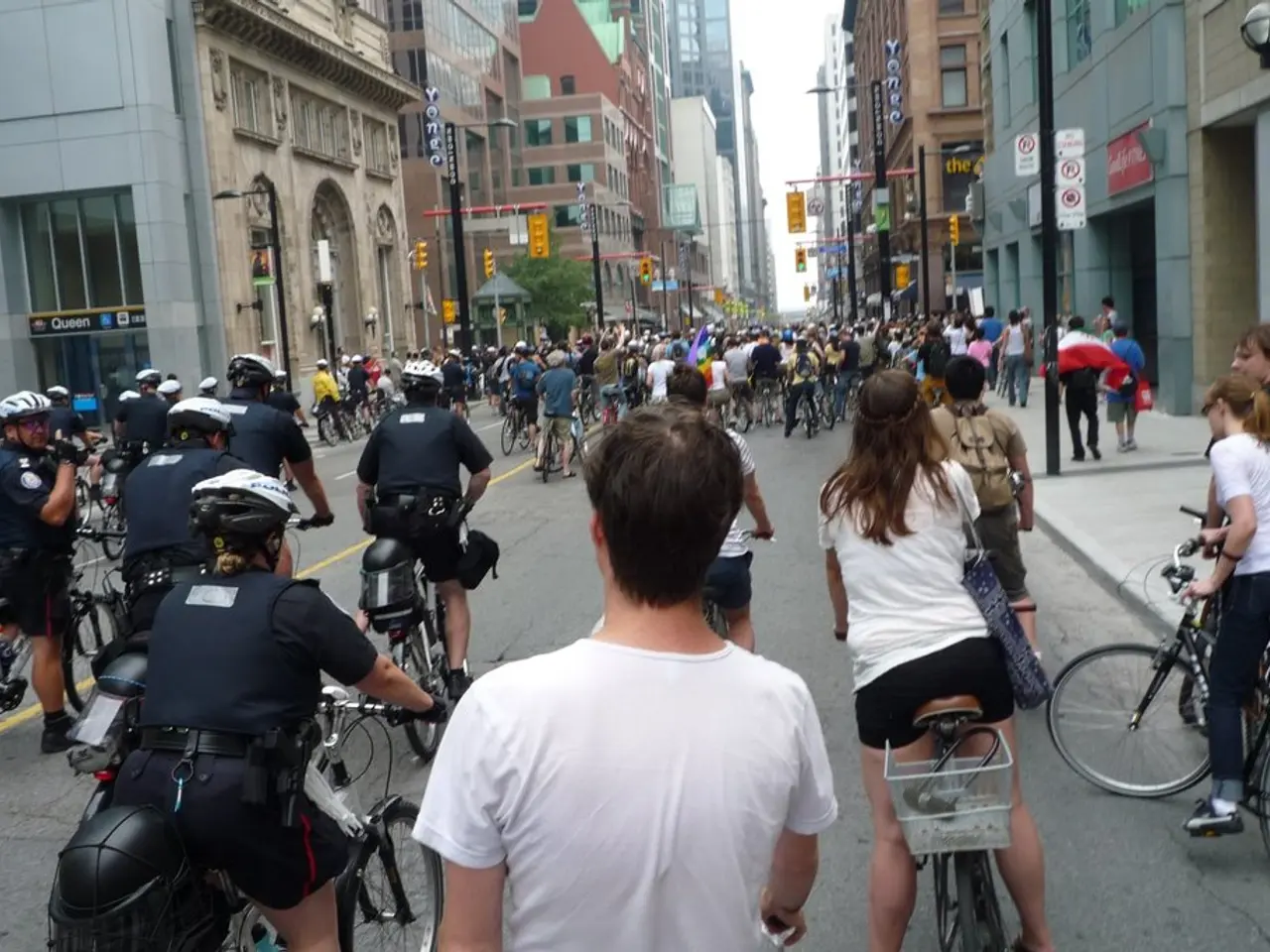Struggles persist in Ho Chi Minh City as authorities attempt to halt unlawful street-side invasions post-amalgamation.
Ho Chi Minh City, following its merger with Binh Duong and Ba Ria-Vung Tau provinces, has intensified efforts to address sidewalk encroachment issues within the newly expanded city area. The city has halted the collection of pavement usage fees and is drafting a new management plan aimed at protecting pedestrian rights and effectively managing public space.
In local wards like Binh Tan, illegal sidewalk-encroaching structures have been actively dismantled. Recently, 52 such structures were removed, and residents have been urged to voluntarily comply with the new regulations. Ward authorities conduct routine and surprise patrols to monitor and crack down on unauthorized occupation of sidewalks and roadways, including illegal vending and parking.
From early 2024 until the fee suspension in mid-2025, the city collected approximately 8.5 billion Vietnamese Dong in fees for temporary sidewalk and roadway commercial use. However, these collections were halted in August 2025 in response to higher-level legal changes.
Street vendors selling fruit and clothes continue to occupy pedestrian areas on Phan Chu Trinh and Phan Bội Châu streets, while motorbikes often crowd the entire sidewalks on these streets. The Bến Thành Ward People's Committee has urged the city to allocate more staff to reinstate the urban order management team and issue clear regulations on urban and construction management.
In other parts of the city, such as Câu Ông Lãnh and Bến Thành wards, motorbikes are causing congestion on Cô Bắc, Cô Giang, and Nguyễn Thái Bình streets. The sidewalks around Bến Thành Market in HCM City's Bến Thành Ward remain affected by persistent encroachment.
The dissolution of Bến Thành Ward's urban order management team has left city authorities struggling to control violations. Câu Ông Lãnh Ward Chairwoman Trương Thị Minh Dung has asked city authorities to reinstate an urban order management team for dissemination and enforcement.
Despite regular patrols by ward police, the problem persists, with street vendors setting up tables and chairs on the roadway, contributing to peak-hour traffic jams. However, Hải Triều and Nguyễn Trãi streets in Bến Thành Ward remain orderly, with businesses and local authorities keeping motorbikes neatly arranged.
The city authorities are preparing updated citywide management policies consistent with national laws to address these issues. Similar campaigns are ongoing in other southern Vietnamese cities, indicating a regional emphasis on public space management.
- The intensified efforts of Ho Chi Minh City to address sidewalk encroachment issues, including illegal vending, parking, and business activities, could potentially be streamlined with artificial intelligence (AI) solutions, enabling efficient monitoring and enforcement of public space.
- As the economy of Ho Chi Minh City continues to develop, addressing the encroachment of homes-and-garden items onto the sidewalks is crucial not only for pedestrian rights but also for preserving a desirable, modern lifestyle that appeals to both residents and tourists.
- The ongoing regional emphasis on public space management in cities like Ho Chi Minh City serves as a reminder that war-torn economies require thoughtful urban planning and management to ensure order, promote growth, and foster peaceful livelihoods.




